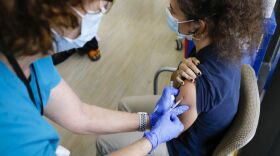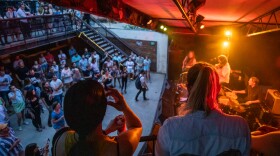Austin Regional Clinic will administer a possible COVID-19 vaccine to kids aged 6 months to 11 years old as part of a study starting next month.
The Pfizer and BioNTech clinical trial will use the same drug being used in adults, but with varying dosages. Children in the study will get either 10, 20 or 30 micrograms in a shot. Adult doses are currently 30 micrograms.
Dr. Jacques Benun, a pediatrician and principal investigator leading the effort at ARC, stressed the importance of the study.
“Twenty-two percent of the new cases of COVID infection in the U.S. now are kids,” Benun said. “So, we need to get them protected.”
He said the clinic will likely recruit between 100 and 150 children to participate. Fifty-five people are already signed up to receive the first of two doses of either the vaccine or a placebo on June 7. Families interested in participating can sign up here, but Benun said hundreds of parents have already expressed interest in the remaining slots.
Benun said coordinators are going down the list on a first-come, first-served basis, but that the study is trying to achieve a gender balance and meet a minimum percentage of participants from different races and ethnicities.
For a child to participate in the two-year program, parents must give consent. Children who are at least 8 years old must also assent.
“They have a similar, easier consent form that is read to the child,” Benun said. “It’s done in a very simplistic way. Like they have some cool videos and pictograms that they show to the kids.”
The kids will have a teaspoon of blood drawn to use as a baseline before they get their first shot. For every two kids getting the vaccine, one child will get a placebo. Neither the person administering the shot nor the patient will know which one they are getting. Six months after the second dose, participants who received the placebo will be offered the vaccine.
Throughout the study, the children or their parents will fill out an electronic diary to track how they are feeling. If they have side effects or get sick, study administrators will contact them. After 21 days, the kids will receive a second dose. Kids will come in for appointments one month, six months, 12 months and 24 months after their second dose to have their blood drawn again. Researchers will compare the antibodies in those blood samples to their base levels to determine how effective the vaccine is.
The trial expects to enroll 4,644 kids across 67 locations in the United States and Spain.














